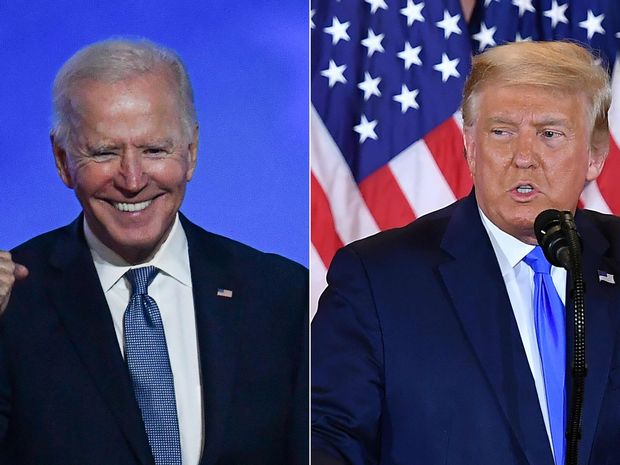By Alkali Amana
The power of attraction which Lagos, a city in South-West Nigeria possesses was enough to inspire the lyrics of Eko – a song by the band Coldplay, which say a lot about the ever-young, enchanting and beautiful clime in its haste. Seemingly untouchable by anything in the life it emits through its bustle and the hustle of its people. This power, characterized by the thronging traffic; ear-splitting honks from cars and a sea of commuters which held the city together, was crippled and rendered sterile when the news and the first waves of the dreaded Covid 19 pandemic swept over the Nigerian terrain. The city’s hustle and bustle, in the turn of events, gave way for desertion on its streets and a sullen silence which became a forced feature of life owing to the isolation measures necessary to ensure survival from the pandemic. This situation, however, was not limited to Lagos alone as major cities in Nigeria, including the Federal Capital Territory, Abuja suffered the same fate. While addressing the situation in his first address to the nation on March 29 2020, the President of Nigeria, Muhammadu Buhari, noted the effect of the virus on these major centres. And its spread to the rest of the country with the following comments on the number of cases in the country
“Majority of these are in Lagos and Abuja. All the confirmed cases are getting the necessary medical care…
The few confirmed cases outside Lagos and Abuja are linked to persons who have travelled from these centres.
We are therefore working to ensure such interstate and intercity movements are restricted to prevent further spread.
Based on the advice of the Federal Ministry of Health and the NCDC, I am directing the cessation of all movements in Lagos and the FCT for an initial period of 14 days with effect from 11 pm on Monday, March 30 2020. This restriction will also apply to Ogun State due to its close proximity to Lagos and the high traffic between the two States.
All citizens in these areas are to stay in their homes. Travel to or from other states should be postponed. All businesses and offices within these locations should be fully closed during this period.”
Since February 27, 2020, when the first official case of COVID-19 in Nigeria was announced, with the first case being an Italian citizen, the situation has developed with more cases occurring, regardless of measures initiated by the state and Federal government to combat the virus and return to normalcy.
The confirmed cases of Coronavirus cases in Nigeria, presently, is well above 62000 since the first case was recorded with a death toll of more than 1000 persons. As a country, Nigeria, during the early days, had to shut down her borders and initiate internal lockdown processes that included:
- The total lockdown of the Federal Capital Territory, Lagos State, Kano State and Ogun State for over two weeks before easing restrictions.
- Interstate travel bans and imposing curfews.
- Stay at home orders and limiting religious, political and another gathering of the crowd.
- Closure of schools and providing guidelines for operating malls, offices and other public premises etc.
All these measures taken at the time massively affected transportation.
For a nation as big as Nigeria, it is undeniable that the transport industry forms a major part of its operations and economy. The importance of transportation cannot be overstated. In its appropriation of the 2020 budget, the federal government of Nigeria allocated the sum of one hundred and twenty-three billion nairas (N123bn) to the transportation ministry. This sum was the third-highest allocation in an N10.33 trillion budget covering for the whole nation. Despite the amount allocated to the transportation ministry, split opinions reigned as to whether the amount was sufficient or not. As reported by leadership.ng, the Chairman, Nigerian Ports Consultative Council, Otunba Kunle Folarin stated that the provision was insufficient for the transport infrastructure development outlined for 2020 considering the massive rail projects and other sub-sectors of transportation in dire need of finance. Without doubt, Covid19 has affected Nigeria in innumerable ways, also touching its ministries. To begin with, major construction projects and significant infrastructural development regarding transportation in Nigeria have been put on hold pending whenever the pandemic is over before work commences again. A clear instance can be seen in the delay on the completion of the 150km major railway project linking Lagos to Ibadan. The railway line is being developed by the state-owned China Civil engineering Construction Corporation. According to the Minister of Transportation, Rt. Hon Chibuike Rotimi Amaechi, most of the Chinese workers who went on their New Year holiday had not yet returned due to at the coronavirus and that delayed the work.
An area which has been severely affected by the advent of this virus in relation to transportation is the increase in the cost and prices of foodstuff almost in markets all over the country. Transportation ensures a stable economy and forms a vital ingredient in determining product prices for retailers as they consider the cost of transportation before selling to the consumer. A stop at the stall of a trader in Nigerian markets will reveal an increase in price, on foodstuff and other items, enough to disturb the average Nigerian seeking to manage the little available at this time.
Also, a loss of revenue for the transportation sector has been occasioned by the advent of Covid19. According to theafricareport.com quoting Bankole Bernard, the Chief Executive Officer of Finchglow travels Ltd and former president of the National Associations of Nigerian Travel Agencies (NANTA), the travel industry of Nigeria had lost revenue to the tune of N180 billion since the pandemic began. Several jobs within the industry, amounting to thousands, were also said to have been lost.
Locally, a hike in the price of transportation can be seen across the nation. Unavoidably, due to lack of passengers and guidelines issued by the government on how motorists should operate, the cost of transportation has risen to almost double its price. In August, Premium Times reported an intervention fund of N10 billion by the Federal Government to cushion the suffering encountered by road transport workers and operators as a result of the Covid 19 pandemic.
The challenges brought about by the effects of this pandemic on the transportation sector are worthy of note as they shall determine a lot after the pandemic. With the interference in transportation, minimizing movement of goods and services alongside halting the process of exchange both locally and internationally, a substantial part of the economy is gone. A drop in the revenue generated by the transportation sector is inevitable in these circumstances as mentioned earlier. With the loss of a huge amount of income in revenue as to transportation, one main challenge that will face Nigeria as a country is that of recovery. Recovery must be pursued to the end to enable a thriving environment which includes the transportation sector which is ultimately a means of restoring economic stability and strength.
The ministry of transport cannot now avoid the extension of time, indefinitely, on the completion of the projects and developments before it as no one can tell when it will be okay to resume work. The only likely possibility to be explored is to project a suitable time with which to commence work, putting into consideration the fact that the country is yet to reach its peak in the fight against Covid19. Also, inadvertently, an unnecessary delay and shift has been caused as to the aim of the ministry meeting its set objectives for the year 2020.
Whatever challenges the ministry of transportation face will certainly affect other ministries that rely on its efficiency. Ministries such as tourism and culture and international relations are examples. Without an efficient transportation system, tourism cannot hold. This can be seen in the country’s early decision to ban thirteen (13) countries including the USA from entry before completely shutting its borders. The implication of this is that tourist sites and other natural sites of attraction which help to boost the country’s image while generating income in the form of revenue will remain shut and inactive to the international community who may have been enticed by the prospects of coming to have a glimpse of what Nigeria has to offer.
All is not lost though and certain prospects can be gleaned from the situation created by Covid19. According to an article on Forbes.com, one benefit of the disruption in transportation at this time is that the rate of road accidents have reduced drastically by a large percentage due to the small number of cars plying the roads in nations affected by Covid19. Nigeria is no exception in this instance. Since the government imposed a lockdown order while urging citizens to stay at home for fear of contracting or spreading the virus, there has been a considerable reduction in road accident across the country. Also, the roads have been decongested to accommodate a safe environment within the country. Part of the benefits of this decongestion is the fact that the atmosphere is clean of carbon elements which are generally toxic for the environment, thereby causing global warming.
Recently, the President of Nigeria, Muhammadu Buhari, presented the proposed budget for 2021 to the house and remarkably to aid the transportation sector, vivid changes were carried within. Tagged, the ‘Budget of Economic Recovery and Resilience’, the key capital spending allocation for transportation is estimated at N256 billion out of N13 trillion overall. Transportation, therefore, places second in the list of budget allocation after works and housing, a rise from the third position the previous year with a lower amount affixed to the sector. The Federal Government is also working to decide necessary means and measures with which to improve transportation in the country after the Covid 19 disruption.
A vivid opportunity created by this hiatus in movement is one that will involve a review of current transportation policies and plans. Effectively, ample time can be found in this period to restructure the system and industry to fit the coping demands of the modern world. These policies can include a means of sustaining the decongestion of the roads within the country which will in turn aid cleaner cities and healthier environments while reducing road mortality. For instance, in recent times as reported by Newsday.ng, the Federal Government committed itself to 3-year maintenance work on the Murtala bridge linking Lokoja to the FCT. More of this is encouraged and should be sought in order to boost the viability of transportation within the country Post-Covid 19.


